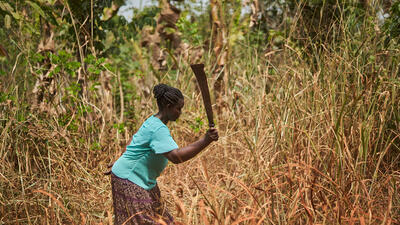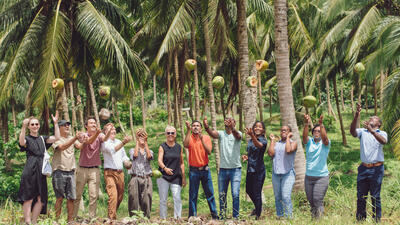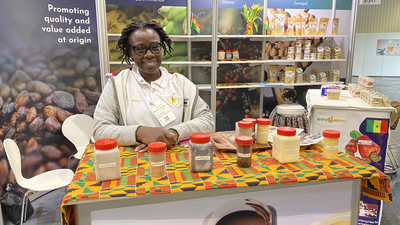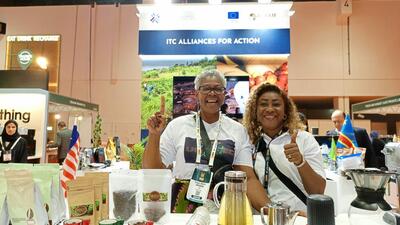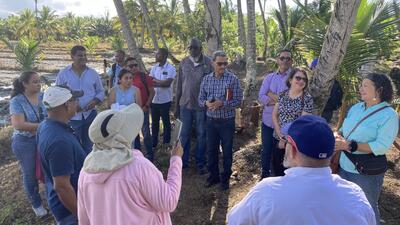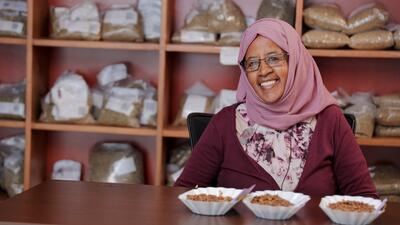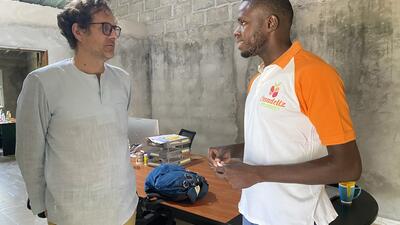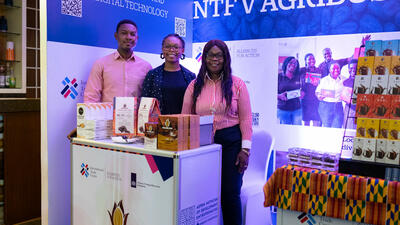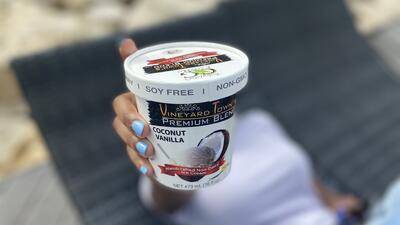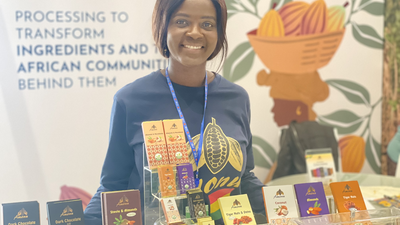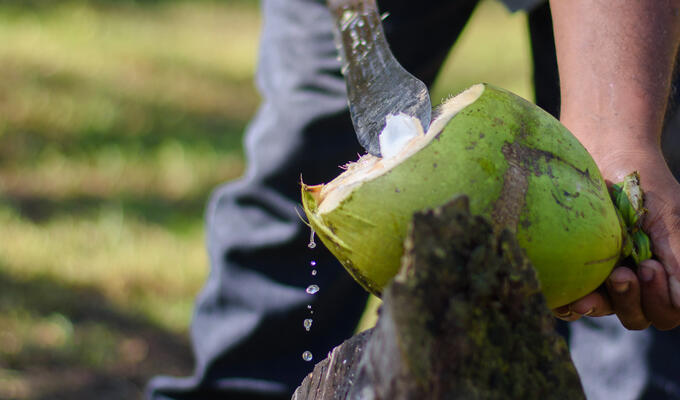

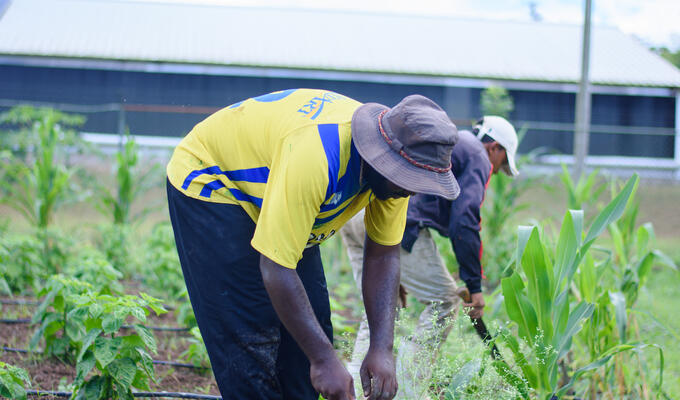
Alliances for a bluer, greener Caribbean
ITC together with Jamaica’s Alligator Head Foundation and Coconut Industry Board develop climate change adaptation and promote Ridge to Reef to diversify economic opportunities for farmers.
The International Trade Centre (ITC) recognizes that ‘Partnerships4Purpose’ can contribute to impactful projects and sustainable outcomes. To celebrate the teamwork behind these efforts, ITC is proud to highlight game-changing initiatives that are made possible through strong and meaningful collaboration.
As we navigate a global climate crisis, small island developing states are at risk. The Caribbean region is at the frontlines, and as the effects of climate change increase, so does the vulnerability of Caribbean production systems, ecosystems, tourism, and infrastructure.
While economic and social development remain a top priority, they cannot be dissociated from environmental protection and management. Climate change adaptation and mitigation need to form an integral part of any development agenda for the region – and that means adopting the concepts of green growth and the blue economy.
How can we foster environmental stewardship, alongside sustainable production?
Through Partnerships.
At the International Trade Centre (ITC), we prioritize sustainable and inclusive agribusiness and tourism through Alliances for Action. The project places sustainable development, thriving farmer communities and equitable market access at the heart of its activities, and strategic partnerships and alliances at the heart of its approach. Why? Real impact for people and lasting, systemic change.
To further develop climate-income smart solution, whilst supporting regional and international trade, ITC, through its sustainable agribusiness initiative and methodology, Alliances for Action has formed a partnership with the Alligator Head Foundation and the Coconut Industry Board in Jamaica to diversify farmer livelihoods, restore communities and increase food production through sustainable environmental management from Ridge to Reef.
Under its Alliances for Coconuts II project, funded by the European Union (EU) and supported by the CARIFORUM Secretariat and OACPS; ITC, the Alligator Head Foundation and the Coconut Industry Board have joined forces to strategically boost and promote a sustainable coconut sector across the Caribbean.
The Alligator Head Foundation engages a collaborative approach to protect fish stocks, restore habitats, and regenerate local economies, and the Coconut Industry Board is responsible for monitoring and informing the Government of Jamaica on the state of the coconut industry, advising growers of agronomic best practices, and providing quality planting materials.
The unique approach: Ridge to Reef and Farm to Fork
The partnership generates alternative sources of income through coconuts and associated crops. Moreover, the collaborative initiative builds the capacities of lead farmer groups and communities to ensure conservation from ‘ridge to reef’ which protects land and marine ecosystems, safeguards and restores biodiversity, and drives adaptation to climate change effects like rising sea levels, and to natural events like hurricanes and unseasonal rains. Finally, it engages environmentally sustainable partnerships for linkages to green finance and fosters environmental stewardship in communities.
Lead farmers are now implementing ridge-to-reef practices, including intercropping, coconut husbandry and integrated pest management. This reduces environmental degradation in the upland areas (ridge) that impact coastal ecosystems (reef). This way the farmers also deepen their resilience to climate shocks while improving their incomes through diversification and better productivity.
ITC’s Alliances for Action programme looks at urgent strategies that protect the Caribbean region and supports its inhabitants through building sustainable food systems from Farm to Fork. To complement the Ridge to Reef approach, measures include adding value in-country to avoid over-reliance on imported food, enhancing food security and improving access to finance and investments to support sector growth.
The impact: Boosted coconut production that values people and planet
The partnership has so far supported over 40 smallholder farmers and their communities in producing and commercializing diversified crops, with over 5,000 combined coconut, scotch bonnet pepper and plantain sucker seedlings distributed. The result: food forests that feed families, bring in extra income and improve soil quality and biodiversity.
Additional partners such as the Caribbean Agricultural Research and Development Institute and Jamaica’s Rural Agricultural Development Authority help lead regular trainings that build farmer community capacities in Jamaica, for long-term, sustainable impact.
Moving forward: Alliances for Action!
This successful alliance will act as a springboard to scale up impact across other member states in the future as ITC and its partners replicate and scale activities. This sets the stage for a bluer, greener Caribbean.
Next up under this partnership is the joint participation in the CARICOM Agri-investment Forum and Expo in Guyana end of May 2022 to mobilize investment and new partnerships. The milestone event takes place in the context of the “25 by 2025” vision for reducing CARICOM’s Agri-Food Imports and stimulating green production and trade in the Caribbean, for further scaling of innovation and impact for communities in Jamaica and the region.
Goals are rapidly being met to boost Jamaica’s economy and improve its farmers’ lives and incomes through sustainable stewardship of land and sea. We are already building on this successful initiative by replicating activities across other Caribbean Member States for long-term, sustainable growth.





